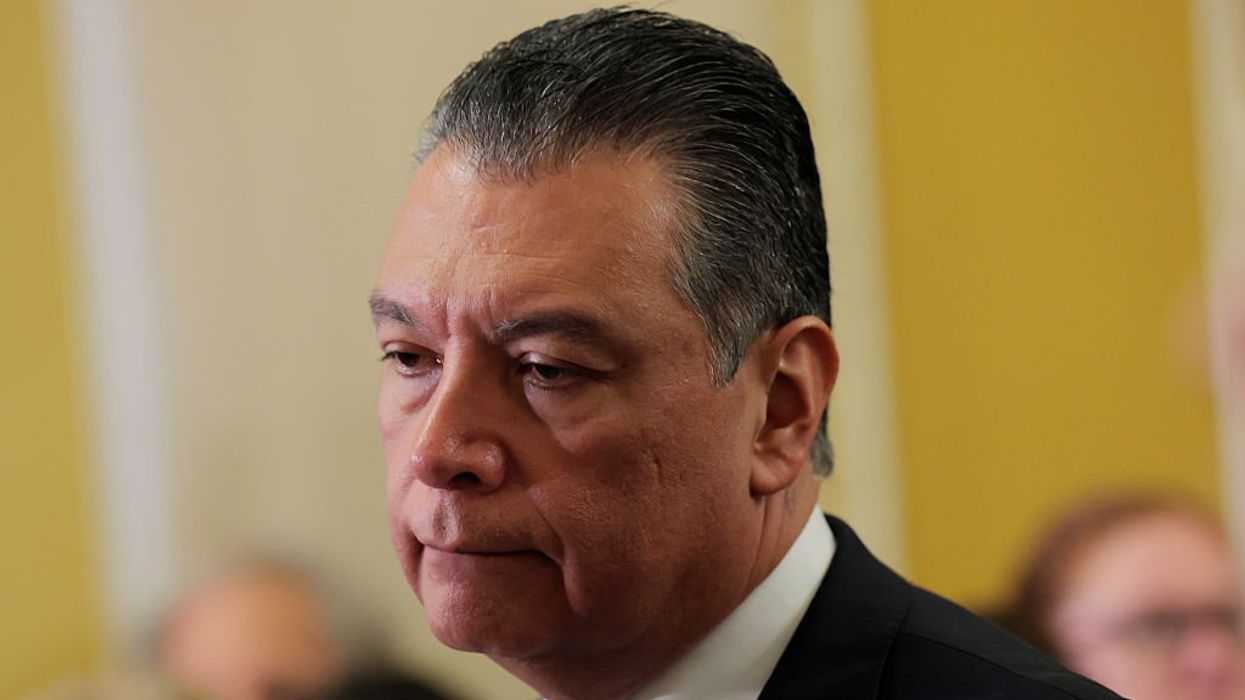The image of U.S. Senator Alex Padilla—handcuffed and dragged away while advocating for immigrant rights—is more than symbolic. It’s a chilling reminder that in America today, even the highest-ranking Latino officials are not immune from the forces of erasure. This moment, along with ICE raids in Los Angeles, an assault on DEI in education, and the Tennessee Attorney General’s lawsuit seeking to dismantle funding for Hispanic-Serving Institutions (HSIs), signals a coordinated assault on Latino dignity, equity, and belonging. These are not isolated events. They are part of a broader backlash against racial justice, driven by white supremacy and an entrenched fear of demographic and cultural change.
As a scholar of race, leadership, and equity in higher education, I know this moment calls for something deeper than mere outrage. It calls for action. We need what I call Critical Transformational Leaders—individuals who act with moral courage, who center justice over comfort, and who are unafraid to challenge systemic racism from positions both high and humble.
Latinos have long been relegated to the margins of American opportunity. Historically underfunded schools, structural barriers to college access, and overrepresentation in low-wage, high-risk jobs are not accidents—they are outcomes of a deeply racialized system. According to the Bureau of Labor Statistics, Latinos are overrepresented in sectors like agriculture, construction, food service, and maintenance. Meanwhile, Hispanic degree attainment continues to trail that of white students, due in large part to institutional neglect, inadequate supports, and economic precarity.
At a time when the U.S. economy urgently needs more college-educated workers, the fastest-growing demographic—Latinos—is systematically shut out of pathways to social mobility. By 2060, Latinos will comprise nearly 30% of the U.S. population. Yet the very institutions that serve them, like HSIs and community colleges, are starved for resources while elite universities absorb the lion’s share of federal and philanthropic investment.
This is no accident. As economist Charles Clotfelter wrote, “Colleges were and are unequal—in the money they take in, the money they are able to put aside, the money they spend, and the quality of their facilities, faculty, and students.” This inequality is a feature of a racialized higher education system—not a bug. And yet, it’s these open-access Hispanic-serving institutions, not the Ivy League, that serve a majority of low-income, first-generation, and Latino students. They are doing the heavy lifting of American democracy.
From my research, I’ve seen Critical Transformational Leaders working at these institutions every day. I’ve met college presidents who create child care supports for student-parents, educators who restructure pathways to living-wage jobs, and staff who fight to keep food pantries open and offer emergency aid. These leaders understand that policy isn’t just paperwork—it’s a life raft. They ask, again and again, “Are we being courageous enough on behalf of our students?”
Yet too often, they are left to do this work without the necessary funding or political support. This chronic underinvestment is not just poor policy—it is racism in practice. As Dr. Ibram X. Kendi reminds us, “A policy is racist if it produces or sustains racial inequity.” Underfunding HSIs while investing heavily in elite institutions sustains exactly that.
We cannot continue to speak about equity in the abstract while actively gutting the institutions that make it possible. This moment demands clear-eyed honesty about our nation’s educational caste system and bold, equity-minded policy solutions to dismantle it. We must radically rethink how we invest in higher education and who we deem worthy of opportunity.
This is not simply about economics—though the economic case for investing in Latino education is clear. It is about our shared humanity. It is about citizenship—not just in the legal sense, but in the moral one. In a just society every voice is lifted, and citizens are granted participation as a right—not a privilege.
When we allow discrimination to go unchecked—when we remain silent as DEI programs are dismantled, as HSI funding is challenged, as Latino leaders are handcuffed—we erode not only opportunity, but democracy itself.
The U.S. has always relied on Latino labor. But now, it must invest in Latino leadership. Our institutions must be reimagined with equity at their center. That means funding HSIs not as an afterthought, but as a national imperative. It means measuring college success not by prestige, but by impact—on students, families, and communities. It means valuing Latinos not only as workers, but as scholars, leaders, and full participants in civic life.
As Leslie Cornfeld of the National Education Equity Lab put it:
“Talent is equally distributed. Opportunity is not.”
To change that, we need more than programs. We need a movement. We need Critical Transformational Leaders—in every classroom, boardroom, and policy chamber—who are willing to confront injustice with vision and resolve. If we want Latinos to thrive not in spite of this country, but because of it, we must ensure the systems around them do not continue to fail.
The future of our democracy depends on it.
Dr. Anthony Hernandez, a faculty member in the Department of Educational Policy Studies at the University of Wisconsin—Madison (UW-Madison), received a research award from the National Academy of Education/Spencer Foundation for his study on leadership in Hispanic-Serving Institutions.





















